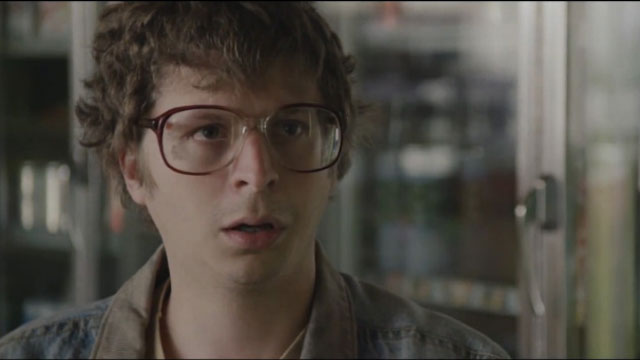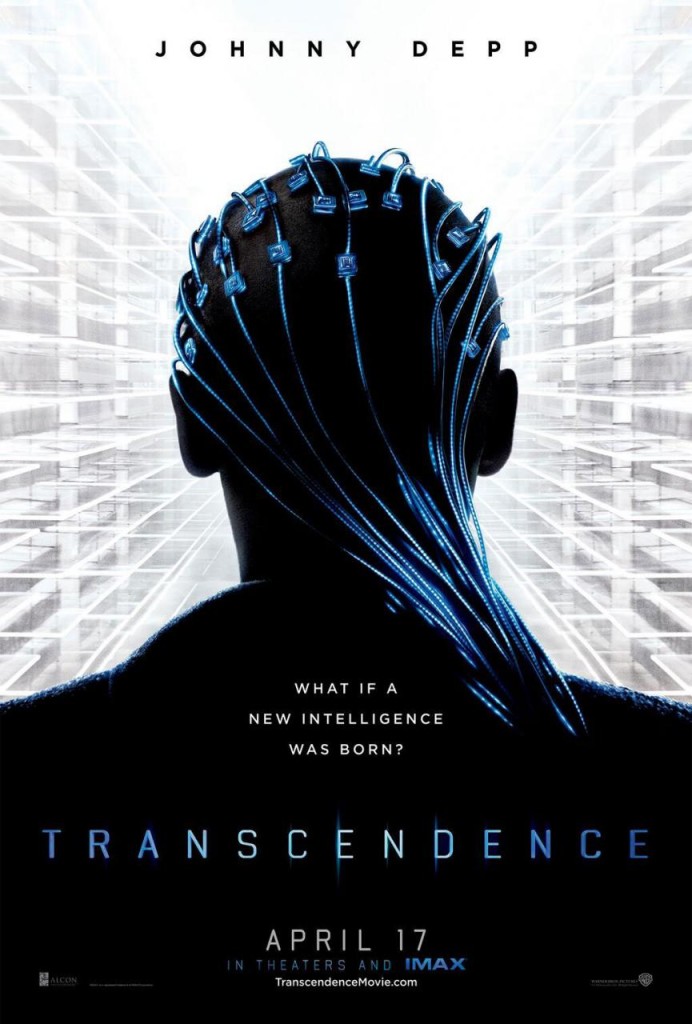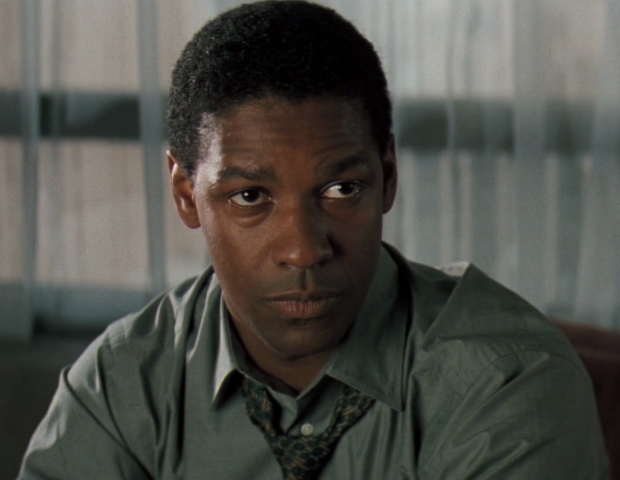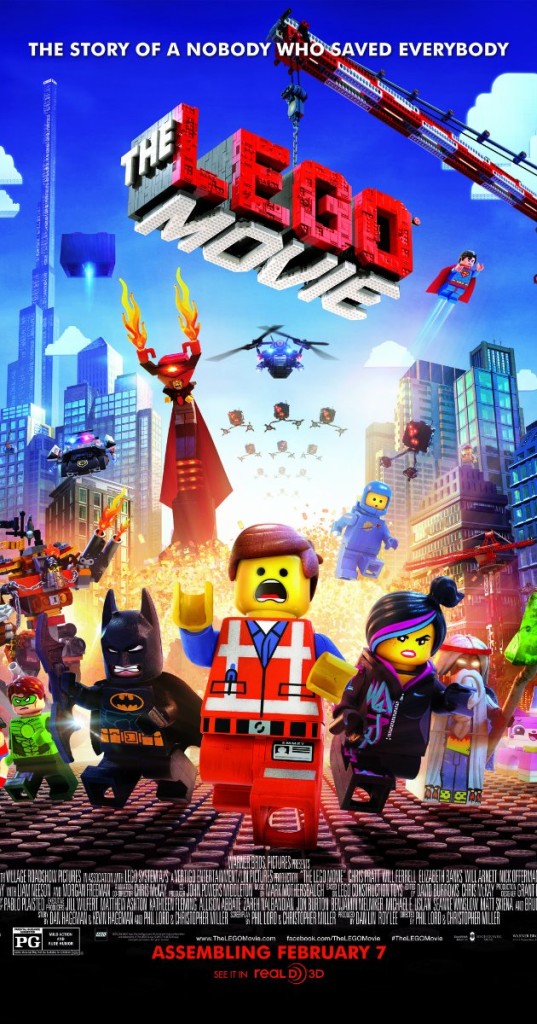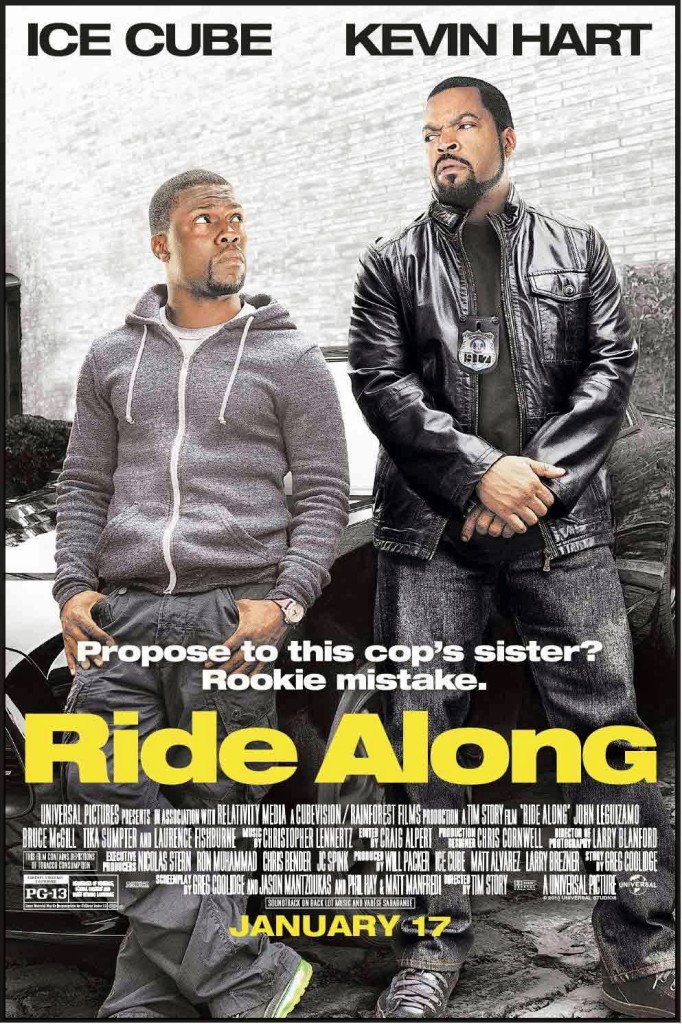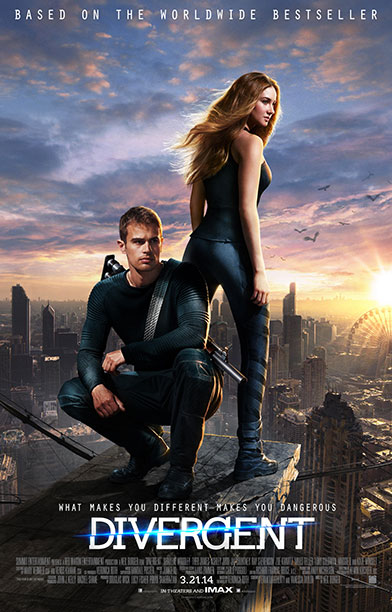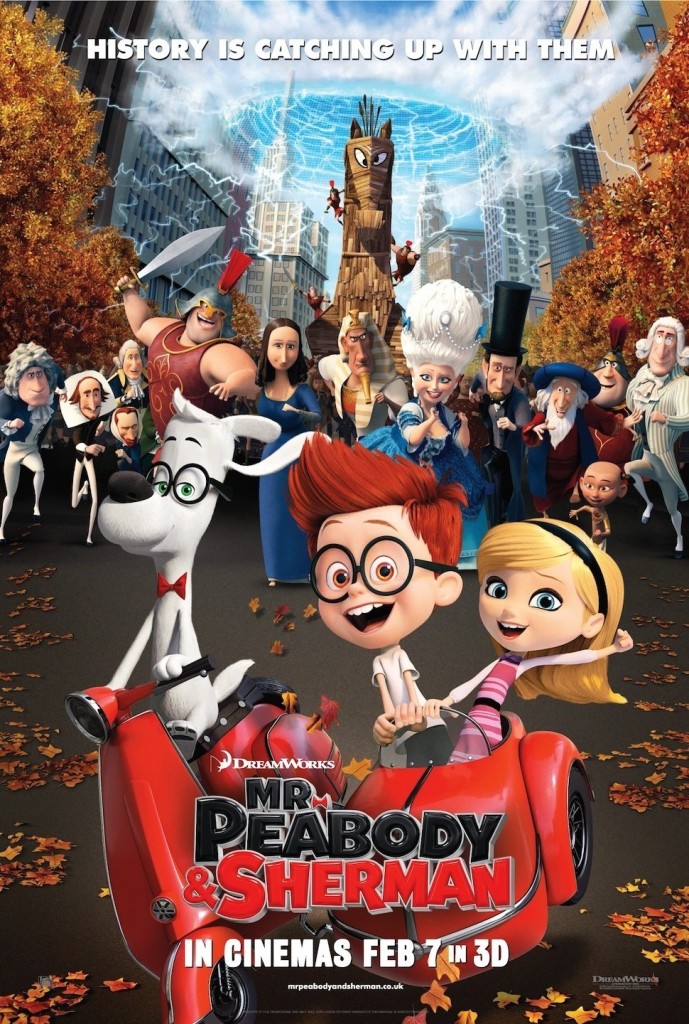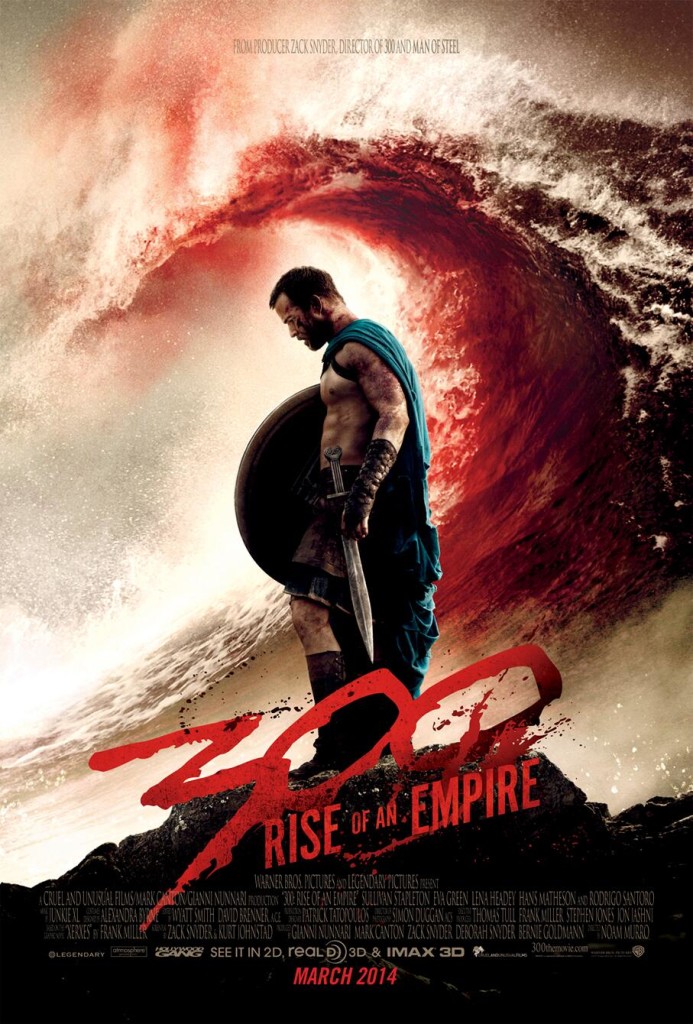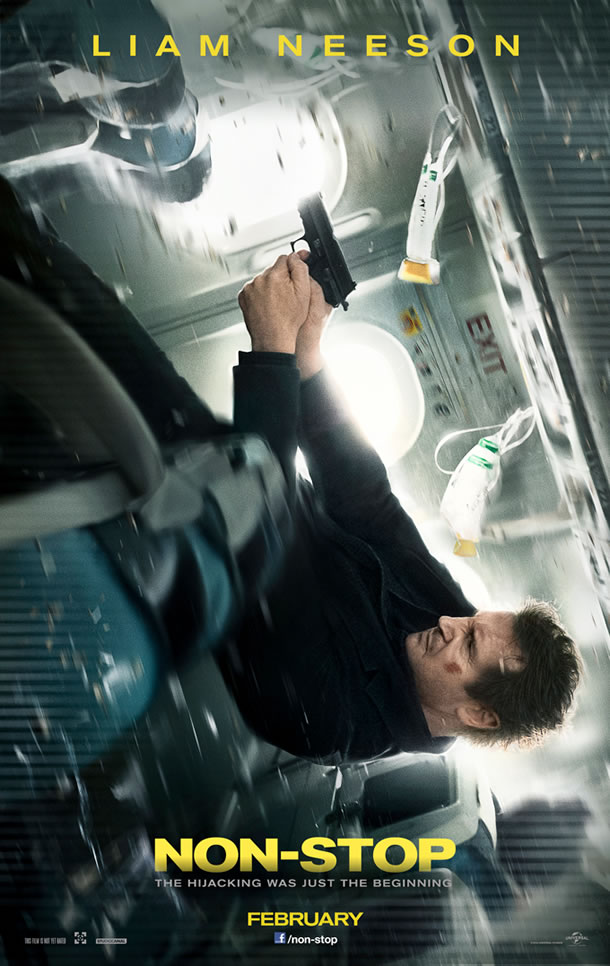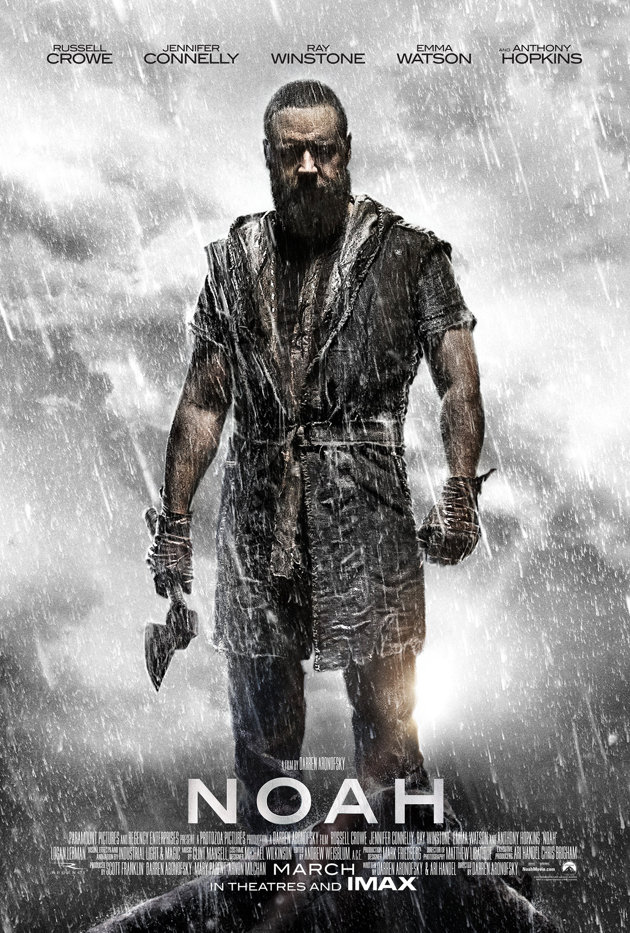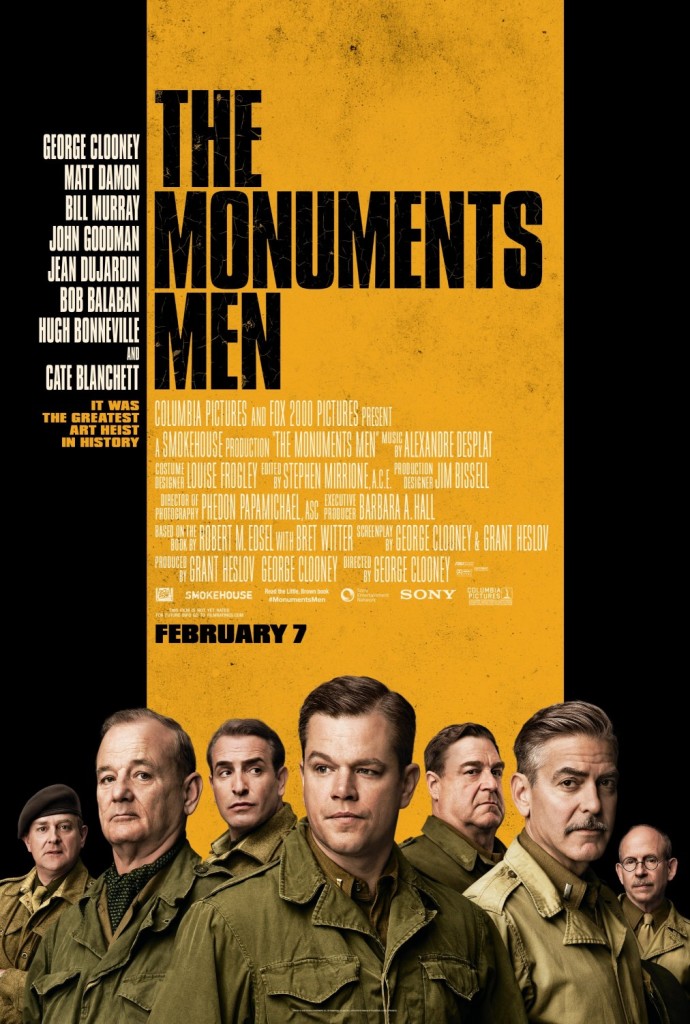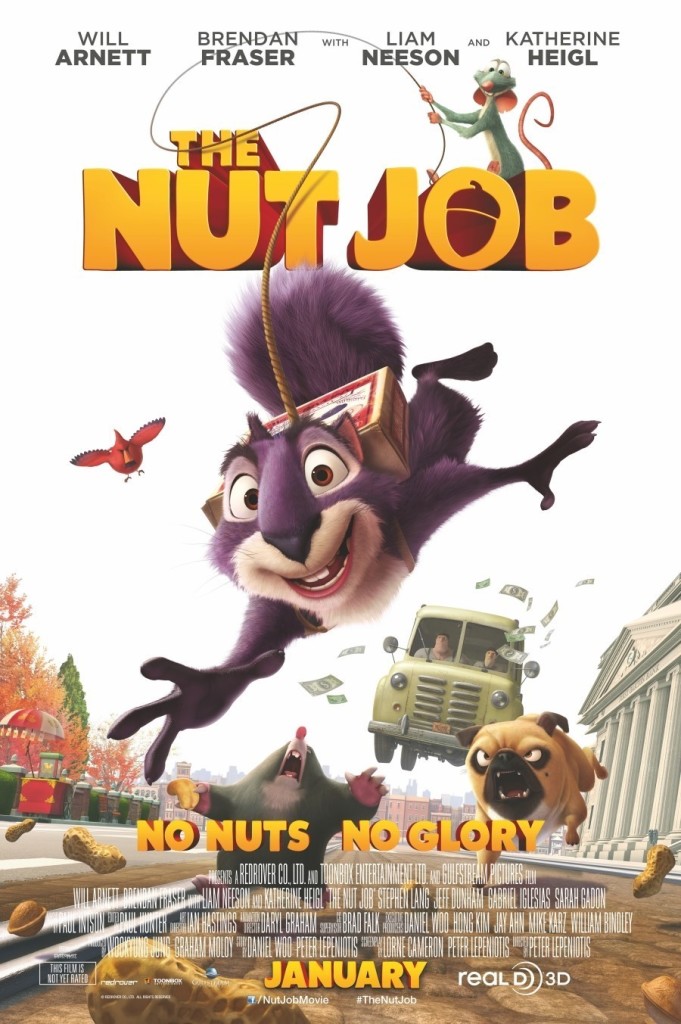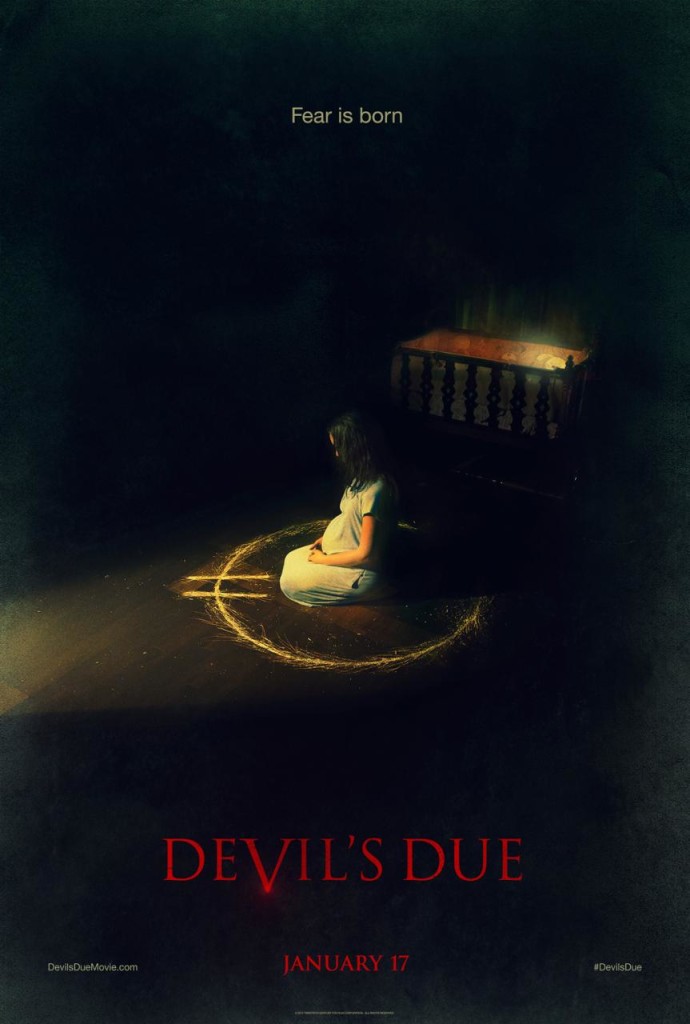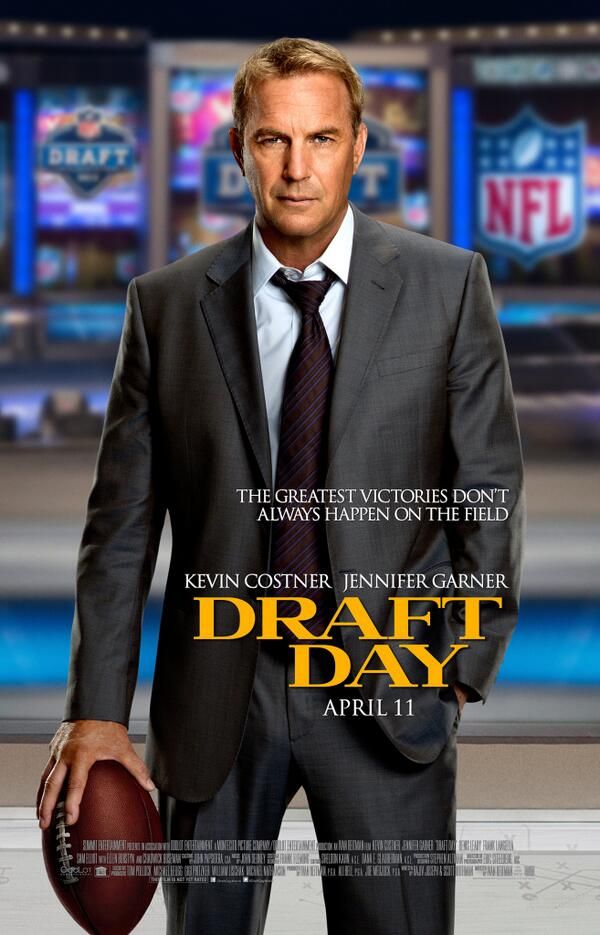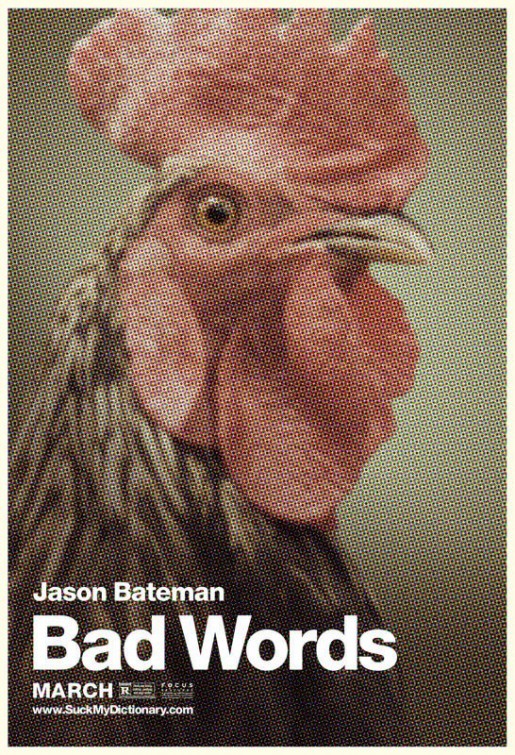Genre: TV Pilot – Dark Comedy
Premise: The host of a kids show that explores life’s tough questions is fired and must move cross-country and reinvent his show on a smaller budget.
About: Charlie Kaufman is coming back to TV, a place he so desperately tried to escape 20 years ago. But instead of writing bad jokes for The Dana Carvey show, this time he’s in charge of the whole shebang, and he’s bringing with him a stellar cast that includes Michael Cera, Catherine Keener, Sally Hawkins and John Hawkes. Where this will go is anyone’s guess. But the show should be debuting on FX soon, a channel that isn’t afraid to take chances on “strange” talents like Kaufman.
Writer: Charlie Kaufman
Details: 39 pages
Is it possible that something can become TOO experimental? The whole reason everyone’s rushing to TV is because they can take more chances, do more interesting things. They can actually experiment, which is something that’s become almost impossible to do in the overly processed, carefully calibrated feature market.
The question is, what do you get when you bring to TV the one person who was already able to experiment in the feature world? The guy who wasn’t having any problems creating weird narratives with strange non-conformist characters? Do you get something that is so experimental that nothing makes sense anymore? I don’t know, but I have a hankering to find out!
Like pretty much every Charlie Kaufman script I read these days, the plot for “How and Why” is a little hard to follow. The opening sequence alone takes 2-3 reads to achieve only the barest understanding of what’s happening.
We start out watching an average family sitcom, something you’d expect Tim Allen to star in. Bobby, one of the child characters in the show, is watching a show called “How and Why” on TV, which is hosted by a man named Goodman, who can best be described as a mix between Tyson Degrasse, Bill Nye The Science Guy, and Mr. Rogers. The theme of his show is asking kids profound, deeply philosophical life questions that they are clearly too young to comprehend.
Bobby turns the TV off and starts asking his parents about these questions, complete with a laugh track and un-hilarious zingers. At the end of the scene, we follow Bobby’s jovial father over to the couch, where he immediately becomes very serious. He eases into a monologue about how “none of this is funny,” and how he “used to live in a cave,” then pulls out a gun and SHOOTS HIMSELF IN THE HEAD. It’s unclear if this is the actor playing the father who does this, or the character himself, but laughs from the audience indicate it was probably part of the show.
Gotta check that pilot out.
Strangely enough, despite this overtly intense and disturbing moment, the family we just saw has nothing to do with the story. Instead we follow Goodman, that TV science guy, as he’s told by his boss that they’re going younger and that he’s fired.
Goodman moves with his family (wife and three triplet boys) to the town where his new show is picked up, (titled “Wherefore and By What Means,” since they’re not allowed to legally use “How and Why”). The production takes place at a company that used to build hallways, which are so big and elaborate that all the rooms are very small. This makes simple things like filming a show really challenging, since everybody’s so mushed together.
Back at home, Goodman starts wondering if he’s past his prime, all while dealing with a wife who doesn’t seem as interested in him as she should be, and hearing tales of his triplet sons getting bullied at school.
But everything takes a turn for the supernatural when one morning, as everyone’s getting ready for the day, they notice that all of their things have been packed back up and put into boxes. Goodman’s wife and kids are convinced it’s a ghost. But Goodman, being the practical, logic-based guy that he is, is thinking there’s gotta be a more rational explanation here.
That is until he starts hearing the faint sounds of a distant laugh track. Could this house that he’s moved into be the former house of a sitcom family? Like a REAL sitcom family? Not the actors playing in the sitcom? We’ll have to wait for future episodes to find out.
Eternal Sunshine is still one of my favorite screenplays ever. So I go into every Kaufman script hoping for a new version of that genius. But I don’t know what to make of this. It’s just so… weird. Every conventional storytelling technique is thrown out in favor of a meta storyline, somewhat gimmicky flourishes (a “hallway company”) and a hard-to-tab, hyper-realistic tone.
The unfocused oft-confusing plot doesn’t help things. We start out with the kind of sitcom where people kill themselves, only to then follow the guy in the science show that one of the sit-com characters was watching. Does that mean Goodman’s world only exists in the sitcom universe, or that his show is known in the real world as well, but was just being used as a program that one of the characters was watching? I’m not sure. And since it’s Charlie Kaufman, I’m not sure if I’m supposed to be sure.
Even if you take this unique world off the table though, and judge the pilot solely by the characters and story, it’s still hard to get into. Kaufman’s take on the world has always been dark, but it seems to be getting darker with every project, leaving a trail of sadness after every character exchange and story beat. When his wife isn’t interested in hearing about Goodman’s day, you get the sense that this man leaves a really sad existence, and finishes every day with the thought, “We’re all going to die anyway, so why even try?”
I’m a big believer that the best stories are about characters who get placed in bad situations, or who’ve hit a rough patch in life, but they don’t complain about it or give in. They fight. I think that’s why American Beauty resonated with so many people when it was a spec (and then, obviously, a film). This guy had a shitty life, but then he took action and made it better. Imagine if Lester Burnham instead said, “My life sucks. What’s the point?” then moped around for the next 90 minutes. Probably wouldn’t have been that good of a film, right?
Hey, I like hope. Kill me.
Also, I understand that Kaufman is writing what he knows here (he used to write sitcoms), but there’s something dated about this premise. I’ve seen people over-do the hyper-exaggerated sit-com thing before, as well as play the laugh track even as terrible things are happening onscreen (like people getting beat up or killed). So there was a feeling of “been there, done that” when that happened. This is Charlie Fucking Kaufman! Why not give us something new?
Why not tackle the absurdity of more current genres, like reality TV? Generally I’m not into that, but I think Kaufman could do wonders with it. What is reality? What isn’t! Who’s real? Who isn’t? That seems to be one of the themes he’s exploring anyway. But alas, I don’t think he knows or really cares about that world much.
I will say this. This script has a very specific tone to it that feels like it requires a very specific treatment. It’s kind of like if you’d read Breathless before it was made. How could you possibly envision what that movie eventually became? So I’m hoping that Kaufman has a few tricks up his sleeve when he shoots this (I think he’s directing this at least).
And How and Why does have its moments. The huge hallways and tiny rooms of his hero’s new workspace, as well as his clueless new boss, for example, make for some funny dialogue. But I’m stuck wondering if that’s going to be enough to make up for a strangely bizarre concoction that, at least from this pilot, doesn’t seem to know what it wants to be.
[ ] what the hell did I just read?
[x] wasn’t for me
[ ] worth the read
[ ] impressive
[ ] genius
What I learned: If you deal your character a bad hand, don’t have them mope about it. Or, at least, don’t have them mope about it for long. Sooner (rather than later) they should want to better their predicament. No one likes to watch anybody mope about life. It’s depressing and, typically, not what we’re looking for when we want to be entertained.
Genre: Sci-fi
Premise: A love story set in a time where a dying scientist is able to upload his consciousness into the internet and, facing its global implications, must fight against the forces who are actively working against the existence of a singularity.
About: Transcendence is one of the few spec scripts that made it to the big screen this year, and a popular one with script readers, including myself. It was Wally Pfister’s directorial debut. Pfister, Christopher Nolan’s long-time cinematographer, was blessed with a strong cast that included Johnny Depp, Rebecca Hall, Morgan Freeman, Cillian Murphy, Kate Mara and Paul Bettany. Despite what looked to be a surefire hit, the film was botched in just about every manner. Critics blasted it (it got a 20% on Rotten Tomatoes) and audiences didn’t come to see it (it made 11 million bucks over the weekend). So today, the question is, why? What happened? Where did things go wrong? I’d like to find out.
Writer: Jack Paglen
Details: 120 minutes/131 pages
Transcendence just made every single one of your jobs as writers a thousand times harder.
You may not know this, but every time a spec-script-turned-film bombs at the box office, it hurts you. Because the studios log that away and say “Yet another reason not to make spec scripts.” Which makes it harder for you, my dear writer friend, to sell a screenplay. I mean, first Draft Day bombs and now this?? We’re not exactly making a strong counter-case here.
The thing is, this should’ve worked. If ever there was a spec that felt right being turned into a movie, it was this one. It had an interesting role for a lead to play, a marketable premise, some intriguing new themes our interconnected planet is dealing with and some inventive set pieces. Black List voters jumped on board. And pretty much everyone I talked to liked the script. So then what went wrong?
For those who don’t know much about the film, here’s an abbreviated plot breakdown:
40-something Will Caster is one of a handful of scientists across the world who is making strides in artificial intelligence. His goal is to reach the “Singularity,” a nerdy term for when computers become as smart as humans. From there, it’s assumed, computers will become exponentially smarter than humans, to the point where they may want to get rid of us.
Which is exactly why a renegade group out there known as the “RIFT” is trying to assassinate Will and others like him. To “save the world.” They do end up shooting Will but not killing him. However, just when he thinks he’s in the clear, Will learns that the bullet was laced with uranium. Will will be dead in weeks from radiation poisoning.
Will’s wife Evelyn, who loves him more than anything, comes up with this wacky idea to use Will’s own research to save him, uploading his brain into a computer. With the help of Will’s reluctant best friend, Max, they’re able to pull this off just before the RIFT find them.
With the entire internet at his hands, Will becomes really powerful, and starts building a super town out in the middle of the desert. While at first Evelyn was excited to have her man back, now she’s kinda freaked out. Will monitors her 24/7, and she’s starting to feel like a kept woman. RIFT joins up with a small department in the FBI to try and take Will and his new city down, but it looks like it’s going to be too little, too late.
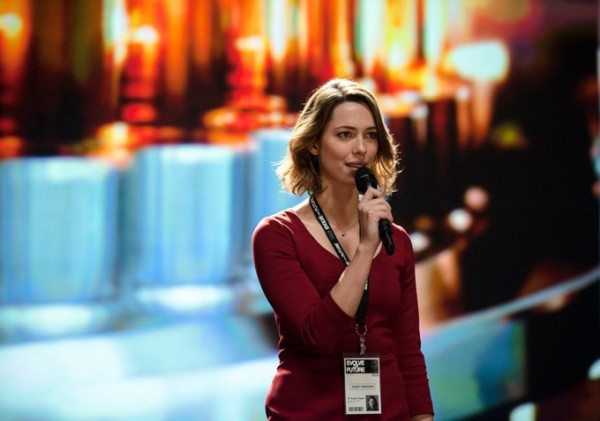 “So let me get this straight Mr. Pfister. You want me to look bored the entire movie?”
“So let me get this straight Mr. Pfister. You want me to look bored the entire movie?”
The first thing I realized about the screen translation of Transcendence was that two of my favorite things about the script were gone. First, Pfister decided to nix the love-triangle between Max, Will, and Evelyn, which was a strange choice. Max’s inner struggle about whether to help Evelyn save her husband even though he secretly loved her, was one of the only aspects of the script that added any layers to the scenes. Without that, everything pretty much played out on the surface.
Then there was the compete lack of any set pieces. In the script, we get this super battle with Will’s self-made super-soldiers (which he creates via nano technology) throwing tanks and doing all these impossible things. In the movie, these “super nano humans” never engaged in any physical attacks. It was beyond bizarre. We built up to three major battle scenes, but nothing actually happened! Right as the nano-soldiers were about to unleash their awesomeness, they’d just… stop.
Now, obviously this could have been due to budgetary reasons. But I suspect it might have actually been a choice. In the script (major spoiler) we find out at the end that, despite RIFT’s insistence otherwise, Will wasn’t trying to rule the world. He was trying to help Evelyn “change the world.” In other words, Will was never bad. He was good! In order for this “shocking” twist to work, I’m guessing our director thought, “Well then Will can’t actually kill anybody! He’s a good guy.” “Aha,” he continued. “That means we can’t have those casualty-heavy set pieces anymore.”
This was a terrible choice, and a trap many writers fall into. In order to make one small aspect of their script work, they sacrifice other bigger parts of the script. In this case, we lost out on these cool set pieces for a lame twist that didn’t make all that much sense anyway.
But the truth is, I don’t think either of these were the reason Transcendence sucked. If you inserted those changes into the movie right now, it would’ve been only marginally better (maybe 35% Rotten Tomatoes instead of 20%). The reason this movie sucked was mainly due to something writers have zero control over: bad directing.
This film was botched on the directing end pretty much from the very first frame, when we get an absolutely unnecessary flash-forward (which was added to the script for God knows what reason) showing a future without internet or something. It did NOTHING for the story except make an already dangerously slow first act five minutes slower.
But here’s the real issue. Pfister has spent the majority of his career being a technician. His job is to capture an image. Directing, on the other hand, is a creative role, requiring thought and inventive choices and imagination and inspiration. Pfister never figured that out, and therefore approached directing like a technician would.
Look at Transcendence: Everything was “technically” okay here. The effects shots were fine. The cinematography was pretty good. The lighting was fine. Actors stood where they were supposed to stand and delivered their lines when they were supposed to deliver them.
But that’s not what a director is supposed to do. A director must elevate the material on the page. And Pfister was only interested in transferring the material from the page. For example, one of the most important things a director must do is get performances out of his actors. There were zero performances in Transcendence. Not a single one. Every single actor in this movie played THE EXACT SAME EMOTION. Which was downtrodden/sad/reserved. I have never seen a movie where every character acted so similarly.
Also, the dangerous thing about a character who is downtrodden/sad/reserved is that if you play that emotion wrong, it comes off as “bored.” And for that reason, every single actor in this movie looked bored. They looked unengaged. It was almost like there was a meeting beforehand to drive home the point that nobody was to emit any emotion during this movie. Ever. Just look sad and deliver your lines in a monotonous voice.
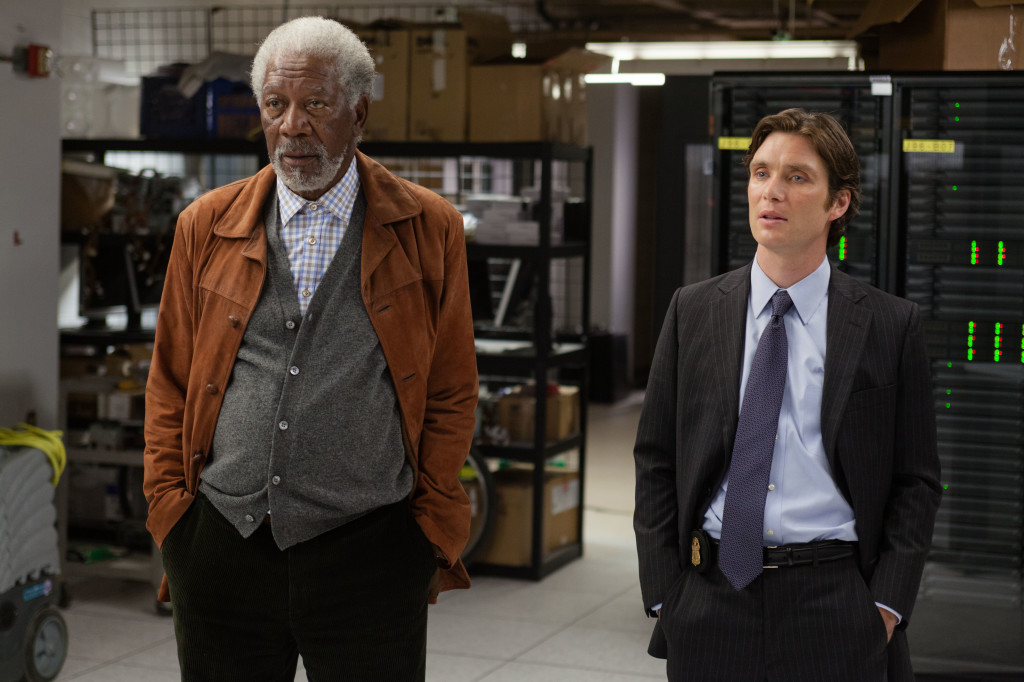 “Hi, I’m Agent Bored.” “And I’m Agent Sad.”
“Hi, I’m Agent Bored.” “And I’m Agent Sad.”
The question was: Was this problem there in the script or just in the movie? It’s been awhile since I read the script, but I remember a more vivid and varied cast. I remember more personality in the characters. And again, I remember all the subtext that played out in that love triangle. With that gone, and everyone pretty much speaking on-the-nose, surface-level sentences to one another, it was hard to find any drama anywhere. This means you had flat performances delivering flat lines inside flat relationships. That right there is Transcendence in a nutshell.
Now, there was one big script mistake that I didn’t notice the first time around that I’m kicking myself for. And it’s a biggie. In fact, it’s one of the most destructive things you can do to your screenplay – a succubus that can destroy your script from the inside-out. Evelyn, our main character, was passive/reactive (aka the old passive protagonist problem – PPP). It’s almost impossible for a script to overcome a passive protagonist, and Transcendence shows why.
EVELYN NEVER DOES ANYTHING! She never instigates anything. She never activates anything. She never goes after anything. When your main character doesn’t do anything other than wait around for other people to make choices or do things, we will get bored with her. We will get annoyed by her. We will build up anger towards her, quietly thinking with each passing minute, “Why aren’t you DOING anything???” And that is exactly what happened here.
In fact, Evelyn is so unengaged that we begin to wonder if she really is the main character. Max, Will’s friend, is the one trying to stop all of this, but even HE’S passive in the way he goes about it, allowing RIFT to come to him and suggest they rescue her. So that’s two out of our three main characters who aren’t doing anything but waiting for others to tell them what to do.
That leaves Will. Will is active, but it’s never clear WHAT he’s actively trying to do. He’s building something… but why? We’re not sure. In the script, where we have action scenes of RIFT attacking Will, we’re distracted enough that we don’t really care that much. But now, with there being virtually no action at all, we’re a lot more aware that Will’s creation doesn’t seem to have a point.
Finally I was reminded, after reading and then watching the film, that seemingly trivial logic issues on the page become INTENSELY MAGNIFIED on the screen. When you read, your brain is more active, as it needs to construct the images of the story you’re reading. When you watch a movie, however, it’s more of a passive experience and because of that, your brain has more time to ask questions, to wonder. Indeed, I couldn’t stop wondering WHY THE HELL the U.S. Army wasn’t trying to get rid of Will’s mini-fortress??? If it was really as dangerous as they were saying, why only send a second-tier local FBI agent to fix the problem??
So what does this all mean? Well, I think the badness that is Transcendence can be blamed equally on the director and the final shooting script. Wally Pfister did not infuse a single scene with life. NOT ONE! And that’s not hyperbole. Go watch this and point out one scene that was inspired. You can’t.
But you can’t discount that script issues played a part in the problem. Like the choice to eliminate the love story, the lack of any real set pieces (which was a strength in the original script), instituting a passive main character, and allowing heavy logic issues to slip through the development phase.
If there’s anything I learned here, it’s that if it feels like a minor problem on the page, it’s going to be a HUGE PROBLEM on the screen. Get it fixed or be embarrassed once you see all those glossy eyes at the premiere.
[x] what the hell did I just watch?
[ ] wasn’t for me
[ ] worth the price of admission
[ ] impressive
[ ] genius
What I learned: Something else I learned here was the importance of CHARACTER VARIATION. Every character here emitted the same downbeat serious demeanor and it absolutely killed the movie. Without variation in character, characters can’t contrast. Without contrast, everyone feels like a clone, a walking copy of one another. Have someone get angry. Have someone be funny. Have someone be crazy. Have someone be awkward. But whatever you do, don’t have everybody be exactly alike.
This is your chance to discuss the week’s amateur scripts, offered originally in the Scriptshadow newsletter. The primary goal for this discussion is to find out which script(s) is the best candidate for a future Amateur Friday review. The secondary goal is to keep things positive in the comments with constructive criticism.
Below are the scripts up for review, along with the download links. Want to receive the scripts early? Head over to the Contact page, e-mail us, and “Opt In” to the newsletter.
Happy reading!
TITLE: I. A. A. I. (It’s All About Imagination)
GENRE: Multiple, but essentially a modern fantasy.
LOGLINE: A tiered story in which a professional screenwriter whose vices have ruined his family life and career, mentors a fledgling screenwriter with no imagination, only to find out both of their lives are controlled by a third writer who disguises himself as a cop.
WHY YOU SHOULD READ: I think you’d enjoy this screenplay because it’s a quirky story that screenwriters could certainly relate to. It’s tiered structure gives the reader/viewer something to think about as the story unfolds and is explained. There is plenty of action, some adventure, comedy, suspense, horror etc. It’s basically a story about the creative art of writing.
TITLE: LOST IN TIME
GENRE: sci-fi
LOGLINE: When a young man finds the enigmatic journal of his long missing father, he sets out to find him only to discover he may be lost not in a far away place but in a far away time – and he’s not alone.
WHY YOU SHOULD READ: I decided to send my script when I read what you wrote about having at least one MEMORABLE scene in a horror script (mine is sci-fi but with horror elements). I believe I have one because every person who read LOST IN TIME (not family or friends but people in the industry) was shocked by the last scene of the script and told me it was unforgettable. I hope you will think so too.
TITLE: The Savage South
GENRE: Driller (Drama/thriller)
LOGLINE: When a professional contract killer discovers he’s become the target of an assassination himself, he teams up with the would-be killer to figure out who set them up.
WHY YOU SHOULD READ: Been a screenwriter for a certain number of years, written some amount of screenplays, placed in various categories of various competitions, and done other unspecific things.
But why should you read this specific script? I don’t know. Because I think it’s a decent script. Because I’m genuinely curious what kind of bashing Carson gives it. Also, this was a top 10 script in the Industry Insider Competition – Roger Avary round. No, it did not win the coveted honor of first place, but Fargo also lost best picture to The English Patient, so clearly people do make mistakes.
TITLE: THE HARVESTER
GENRE: Horror
LOGLINE: Murdered to advance the construction of an exclusive golf resort, a mountain man is resurrected by Death himself and urged to seek revenge as an undead killing machine. But vengeance is just the beginning…
WHY YOU SHOULD READ: I’m a lifelong horror fanatic and very much a product of the VHS generation. While moaning about the state of modern horror movies one night, someone said “You should write a better one.” So, this is what I came up with. THE HARVESTER is a high-concept, supernatural-slasher that celebrates its bloody roots with an imaginative and fresh approach. Rest assured, there are no prolonged torture sequences, haunted houses, found footage or zombies. THE HARVESTER is something else. It’s my sincere attempt at horror the way I lovingly remember it; gruesome and gory, sure, but also eccentric, cinematic and, most importantly, FUN! THE HARVESTER is a blood-soaked blast of old-school carnage with an ending so wild and explosive; it needs to be read to be believed. Hope you’ll check it out.
TITLE: FOE
GENRE: Science Fiction
LOGLINE: In a near-future world shattered by an alien invasion, a lone Special Ops soldier, unaware that he’s the key to victory, stumbles on a group of disabled military vets holding their abandoned VA Hospital as the invaders lay siege.
WHY YOU SHOULD READ: I’ve been writing screenplays for years; had low-level agents twice; sold options twice; almost had deals 3 times; considered quitting many times, but always came back because I realized I just liked writing, and if one never sold, I’d do it anyway. So I do something over and over and expect a different result. Insanity, right? Anyway, FOE is the script I think could restore my sanity. So, for mental health–humanitarian–reasons, I’m begging you. Help a brother out.
Get Your Script Reviewed On Scriptshadow!: To submit your script for an Amateur Review, send in a PDF of your script, along with the title, genre, logline, and finally, something interesting about yourself and/or your script that you’d like us to post along with the script if reviewed. Use my submission address please: Carsonreeves3@gmail.com. Remember that your script will be posted. If you’re nervous about the effects of a bad review, feel free to use an alias name and/or title. It’s a good idea to resubmit every couple of weeks so your submission stays near the top.
Genre: Noir/Historical
Premise (from writer): P.I. Sam Marlowe shows novice writer Raymond Chandler the realities of detective work, juggling gangsters, corrupt politicians and movie star Jean Harlow to find out who’s burning farms on the Arroyo Seco Canyon.
Why You Should Read (from writer): This is the real life story from the files of Detective Samuel B. Marlowe.
Writer: L.M. Ransil
Details: 107 pages
I’m going to say something that’s rather embarrassing. I don’t know anything about Raymond Chandler, one of the most famous novelists of all time. I’ve, of course, heard his name. But I had to rely on good old Google to know what he wrote, and just how big time he actually was.
When I realized that Chandler was going to be a selling point of the story, I was worried. There aren’t too many people around with a healthy memory of the 30s, and with this being such a youth-obsessed town, selling stories to a youth-obsessed audience, I wondered if a movie from that time could drum up any interest.
However, as the script goes on, and we start wandering onto the stages of MGM, and into the back yard of Hollywood starlet Jean Harlow, I began to see the potential of “Marlowe” to exploit the L.A. noir sub-genre, which always finds its way into production every few years or so. So, were we gonna get another L.A. Confidential here? Or was this no-ir close to that (Get it? “no-where.” Hey, it’s Friday, people. Loosen up!)?
“Marlowe” is so densely plotted and has so much going on, it’s a little hard to keep up with, but I’ll do my best to summarize. Sam Marlowe is an African-American private investigator in Los Angeles, circa 1937 (the very first, in fact).
When he’s not working, Marlowe usually sits at his office, where he cavorts with his good friend and aspiring actress, Velma, and Velma’s brother, the mentally retarded Freddy. On this particular occasion, he’s also brought home the perpetually wasted Raymond Chandler, a friend and aspiring novelist.
So one day, Freddy comes back stabbed in the gut, on death’s doorstep, a camera in his hand. He mentions something about a fire in “Arroyo Seco” and then dies. Committed to finding his killer, Marlowe goes on the offensive.
Along the way, he finds himself lured in by one of the studios, MGM, who wants him to find their new cash cow, starlet Jean Harlow, who’s recovering from her husband’s (famous director Paul Bern) suicide, by partying her brains to mush.
While going after Harlow, Marlowe runs into Los Angeles bigwigs like the mayor, the district attorney, and uber-gangster Benjamin Siegel, who all, for some odd reason, have taken an interest in his latest exploits. Could this have something to do with the rumor that Harlow’s husband didn’t commit suicide, but was possibly murdered?
Eventually, Marlowe chases down Freddy’s murderers to an old house in Arroyo Seco, where he discovers a conspiracy by the town’s politicians and gangsters to burn everything in sight in order to create a highway between there and L.A. proper, that will make everyone rich.
“Marlowe” has been gaining some heat in other areas of the internet (I know it did well in The Tracking Board competition) and you can immediately see why. The script is dense with “old-world” Los Angeles mythology, a time capsule into 1937 that was so well-researched, you could feel the corrupt cops breathing down your neck.
The thing is, “Marlowe” is so full of story, I began to lose sight of what the story actually was. The script starts out being about Marlowe looking into his friend’s murder. However, it quickly turns into Marlowe needing to find and take care of Jean Harlow. Finally, there’s a plot that involves a mysterious house that Velma is trying to secure so she can bury her brother on the land.
All of these things are interconnected, but most of those connections are kept from us as mysteries to be revealed later. As the second act evolves, it’s clear that Harlow’s storyline is taking precedence, so we jump on board with that. Once that winds down, however, and we head back to Freddy’s murder and the house in Arroyo Seco, I’d forgotten a lot of the intricate details required to connect the overall mystery’s dots.
I guess my question would be, does “Marlowe” have too much plot going on? Are we trying to do too much here? That may come down to who the audience for Marlowe it. If it’s for people steeped in L.A. noir lore who know all these names like the back of their hand, it’s probably a lot easier for them to keep up.
For someone like me, though, who knew nobody, it took a lot more brain-power just to connect one scene with the next, much less understand the overall mystery. I’m still trying to figure out how that house in Arroyo Seco was connected to everything.
I guess in the end, you make a choice as a writer who you want to appease, the people who know everything or the people who know nothing. But for me, personally, I would’ve loved a little more hand-holding. I’m a bit of a simpleton.
In addition to the complexity of the plot, I was surprised at how little Raymond Chandler had to do with it. Since the script starts with him, we’re led to believe he’s going to be a major character. Particularly because Marlowe supposedly inspired Chandler’s greatest works. But Chandler passes out early, is absent for 80 pages, before returning for the finale.
Having said all that, there are definitely some things to celebrate about Marlowe. First, the character work is really strong. You feel everyone here, from the weight of the city’s biggest gangster to the widespread corruption of the most insignificant beat cop. Writing memorable characters is one of the hardest things to do in screenwriting, so whenever I see it done well, I have to give the writer an ovation.
Also, Marlowe is a protagonist actors are going to want to play. A black private detective who stands toe-to-toe with the city’s biggest white personalities in 1937? I could see Denzel Washington chewing this role up.
The dialogue is good too. Ransil understands the nuances of that chip-on-your shoulder back-and-forth a p.i. in 1937 would dish out. “I don’t like your manners,” someone says to Marlowe. “Don’t like’em much either,” he replies. “Let justice do its job, Marlowe,” the D.A. says later. “Justice goes to the highest bidder. Anyone who can’t pay, better go find his own.” There’s a lot of that here, and it’s all pretty darn good.
But you guys know me at this point. I’m all about the story. If the story isn’t at the very least, clear, it’s hard for me to get on board. And that’s my big issue with “Marlowe.” I think there’s too much going on in it. I’d ask Ransil if there’s any way to simplify this.
Do we really even need Chandler? Since he’s only in the last 20 pages? And do we need Freddy? I know it’s his murder that starts this investigation, but it’s clear that the Jean Harlow stuff is the main storyline, overpowering Freddy so much that his murder almost becomes an afterthought.
What if we started with Marlowe getting hired by the studio to find Harlow? That investigation leads him into the Chinatown’esque conspiracy of Arroyo Seco. Then you only have to connect the dots between two elements instead of three. In many ways, it would still be the same story. I think it’s good that Freddy gives Marlowe’s case a more personal slant, but if it’s at the expense of clarity, maybe it isn’t the right way to go.
Then again, this was only my experience with the screenplay. Others may have been able to follow it just fine. That’s the nice thing about the comments section, is that we can pinpoint common problems.
But yeah, I thought “Marlowe” had a lot of good things going for it, and there’s no doubt Ransil is a talented writer. I would just hope that in future drafts, it’s a little easier to follow.
Script link: Marlowe
[ ] what the hell did I just read?
[x] wasn’t for me
[ ] worth the read
[ ] impressive
[ ] genius
What I learned: When you’re writing real-life people into your script, don’t assume that the reader knows who they are, because a lot of readers won’t know who they are. Treat these characters just like you’d treat any characters and have them work on their own right. In other words, a story should never be determined by its “celebrity cameos” but rather by the quality and clarity of the characters as they relate to the story.
We are nearly a third of the way through the year (how did that happen? Just yesterday it was New Years!). While we can’t make any definitive judgments about the 2014 box office (and how it affects us screenwriters) yet, that’s not going to stop me from doing so. I do these write-ups mainly because writers don’t realize how hard it is to a) get a spec purchased, and b) get a spec made into a movie. They think anything they write has a shot at being made into a movie. And I hate to say it, but that’s not the case.
Hollywood is more narrow-minded in what it lets through, and it’s important for you to know which types of movies those are. Also pay attention to the worldwide grosses, as more and more projects are being determined by how they’ll do overseas. And, of course, pay attention to the kinds of movies that audiences are going to in general. These are the movies the public wants to see, so these are the kinds of writers Hollywood is looking for. Now, of course, we haven’t hit the summer yet, when all the big boys come out. And we’re still a ways away from the “serious” movies that come out at the end of the year. But this is still a good representation of what studios are looking to make. Let’s take a look.
1) The LEGO Movie
Writers: Dan Hageman & Kevin Hageman and Phil Lord & Christopher Miller
Genre: Adventure/Animation
Domestic Gross: $251 million
Worldwide Gross: $425 million
Origin: Legos are, of course, a toy, which means the number one movie of 2014, so far, is based on a product. Of note is that they made the movie to span a large demo – not just children – by writing a clever imaginative script.
2) Captain America: The Winter Soldier
Writers: Christopher Markus & Stephen McFeely – concept and story by Ed Brubaker – based on the comic book by Joe Simon and Jack Kirby
Genre: Action
Domestic Gross: $167 million (and counting)
Worldwide Gross: $502 million (and counting)
Origin: Another comic book adaptation and sequel. Captain America is part of the new “universe” approach that studios have gotten jiggy for. This was another solid script that the writers clearly put a lot of time into. One of the reasons Marvel is on top right now is because they don’t phone it in with their scripts.
3) Ride Along (SPEC SCRIPT!)
Writers: Greg Coolidge and Jason Mantzoukas and Phil Hay & Matt Manfredi (story by Greg Coolidge)
Genre: Comedy/Action
Domestic Gross: $134 million
Worldwide Gross: $149 million
Origin: Okay, here’s our top spec script showing of the year. Notice that it combines elements of comedy and action, very spec-friendly elements. While comedies aren’t as big as they used to be, due to their dismal worldwide prospects, this proves that if you want to write a spec, a comedy is a good way to go, and the old “buddy cop” formula is still working.
4) Divergent
Writers: Evan Daugherty and Vanessa Taylor (based on the novel by Veronica Roth)
Genre: Action/Adventure
Domestic Gross: $126 million
Worldwide Gross: $176 million
Origin: Adaptation of a book, specifically a YA novel. Divergent has done well, but not as well as Lionsgate would’ve hoped. This may show that the YA novel craze is losing steam, or at least the female-driven side is (male-centric YA novel adaptations are coming. We’ll see how those do).
5) Mr. Peabody & Sherman
Writers: Jay Ward and Craig Wright and Robert Ben Garant & Thomas Lennon and Michael McCullers
Genre: Animation
Domestic Gross: 105 million
Worldwide Gross: 248 million
Origin: This was adapted from the old Rocky and Bullwinkle show, which makes it classic intellectual property based on a cartoon. Animation is a beast because it can bring in every single demo when done well.
6) 300: Rise of An Empire
Writers: Zack Snyder and Kurt Johnstad (based on the graphic novel by Frank Miller)
Genre: Period/Action
Domestic Gross: $105 million
Worldwide Gross: $328 million
Origin: Intellectual property strikes again. Here we have a sequel to a film based on a graphic novel. I think one of the reasons graphic novels have been so popular lately is that unlike traditional books, executives can actually see the visual style of the movie right there in front of them. So snatch up the rights to cool graphic novels if you can find them!
7) Non-Stop (SPEC SCRIPT!)
Writers: John W. Richardson & Chris Roach and Ryan Engle (story by Richardson and Roach)
Genre: Thriller
Domestic Gross: $90 million
Worldwide Gross: $186 million
Origin: We got another spec script here, this one a straight-forward thriller, which is a great genre to write in if you’re trying to sell a script. I have to admit I didn’t like this at all when I read it, but if you write something a studio can easily market, they’ll pay for the big actor and all of a sudden, you have a film to be reckoned with at the box office.
8) Noah
Writers: Darren Aronofsky & Ari Handel
Genre: Drama/Period/Adventure
Domestic Gross: $86 million (and counting)
Worldwide Gross: 248 million (and counting)
Origin: Here we have an adaptation of something in the public domain. So in that sense, it’s technically a spec script. However, it’s a spec by the director himself, and writer-director projects can’t be seen as specs in the traditional sense. Biblical stories are sort of hot right now, and as a writer told me the other day, the Bible is chock full of good story material.
9) The Monuments Men
Writers: George Clooney & Grant Heslov (based on the book by Robert M. Edsel and Bret Witter)
Genre: Drama/Period/Action
Domestic Gross: $77 million
Worldwide Gross: $153 million
Origin: The Monuments Men was adapted from a book. Projects like these are hard to base future decisions on. If Joe Schmoe would’ve written this, I’m not sure it would’ve gone anywhere. This was Clooney’s love child to begin with, so he was promoting it from the get-go. His amazing cast didn’t hurt either. I’ll also say this about Clooney. Everyone loves him. He’s one of the few guys who seems unaffected by fame and understands how lucky he is. If you’re that kind of person in this business, good things tend to happen to you. Therefore, I’m not surprised that actors jumped at the chance to help him with his passion project.
10) The Nut Job
Writers: Lorne Cameron & Peter Lepeniotis (story by Daniel Woo)
Genre: Animation
Domestic Gross: $63 million
Worldwide Gross: $69 million
Origin: Here we have another animated film, but I want you to note the difference between this one and the two other higher ranked animated films on this list. In those cases, the subject matter catered to both kids and adults (Every adult used to play with legos and Mr. Peabody was based on an old cartoon that adults were familiar with). The Nut Job clearly only caters to kids. And when you do that, no matter how much kids want to see the film, many parents will resist because they know it’s going to be dumbed-down nonsense. So write your animation for kids AND adults, since the adults are the ones with the actual credit card.
–OTHER NOTABLE SPEC SCRIPTS–
28) Devil’s Due (SPEC SCRIPT!)
Writer: Lindsay Devlin
Genre: Found-Footage/Horror
Domestic Gross: $16 million
Worldwide Gross: $33 million
Origin: Found-footage is still the cheapest genre to produce, so this is a nice genre to write in. The tricky thing is that a TON of these are going straight-to-video, and I still haven’t figured out what determines which films go straight-to-videos and which ones get wide releases. It all seems quite arbitrary. I guess all you can do is come up with the coolest most original found-footage concept you can, write a killer script, and hope for the best.
32) Draft Day (SPEC SCRIPT!)
Writers: Scott Rothman & Rajiv Joseph
Genre: Drama/Sports
Domestic Gross: $12 million (and counting)
Worldwide Gross: no international release yet
Origin: This is the truest spec script project here. Draft Day is the script that finished tops on the Black List a couple of years ago. And unlike all these other spec scripts that made the list, it’s not based on a common “spec script” genre. Perhaps that’s why it didn’t do well. Personally, I thought the script was awesome and it was botched on the directing end. They tried to give this that Jerry Maguire sheen. It should’ve been a lot grittier.
35) Bad Words (SPEC SCRIPT!)
Writer: Andrew Dodge
Genre: Comedy
Domestic Gross: $7 million
Worldwide Gross: no international release yet
Origin: This was a good script, but it’s hard for these edgy indie comedies (comedies not built around a mainstream idea) to break out and do well at the box office. However, these do really well on the script-reading circuit as they’re generally more fun to read that those bigger mainstream ideas. And for that reason, a few of them always get made.
SUMMARY
I don’t know about you, but I see a lot of adventure, action, comedy, and thrillers. This is not surprising. People go to the movies to FEEL SOMETHING other than their otherwise boring lives. They want to laugh, they want to be scared, they want a rush. Which is why these genres do so well. Even in the two period pieces that made the top ten (Noah and Monuments) there’s plenty of action. I’m a little disappointed to see only 5 spec scripts in the top 50 (not counting some of these low-grossing indie films). Then again, based on the low-quality of scripts I’ve been reading lately, I guess it makes sense. The problem, I think, is that more and more prod-cos are snatching up intellectual property and hiring writers to write the material, so good writers would rather go for the guaranteed money than risk 8 months on a spec. Then again, that’s good news for all of you. With less people competiting in the spec market, there’s more of an opportunity to write something that stands out and gets noticed.
So, what about you guys? What conclusions did you draw from this list?


